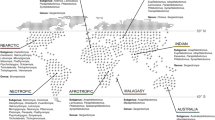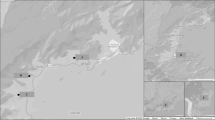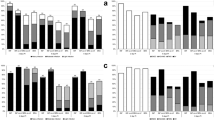Abstract
SERGENT, ED. et Et., Parrot, L., Donatien, H., and Béguet, M. (C.R. Acad. Sci., vol. 173, No. 21, pp. 1030–1032), first successfully transmitted cutaneous Leishmaniasis to man from sandflies. Their experiment consisted of dividing a batch of 559 sandflies into 23 batches, crushing the sandflies in saline, and inoculating scarified points on the arms of volunteers. The sandflies were caught in Biskra, an endemic centre of cutaneous Leishmaniasis, and the experiment was performed in Algiers, where locally acquired cases of the disease are unknown. One experiment (from a batch of 7 specimens of Phlebotomus papatasii) was successful, Leishman-Donovan bodies being found from a papule which appeared 2 months and 24 days after the experiment.
This is a preview of subscription content, access via your institution
Access options
Subscribe to this journal
Receive 51 print issues and online access
$199.00 per year
only $3.90 per issue
Buy this article
- Purchase on Springer Link
- Instant access to full article PDF
Prices may be subject to local taxes which are calculated during checkout
Similar content being viewed by others
Author information
Authors and Affiliations
Rights and permissions
About this article
Cite this article
ADLER, S., THEODOR, O. The Experimental Transmission of Cutaneous Leishmaniasis to Man from Phlebotomus papatasii. Nature 116, 314–315 (1925). https://doi.org/10.1038/116314b0
Issue Date:
DOI: https://doi.org/10.1038/116314b0
Comments
By submitting a comment you agree to abide by our Terms and Community Guidelines. If you find something abusive or that does not comply with our terms or guidelines please flag it as inappropriate.



